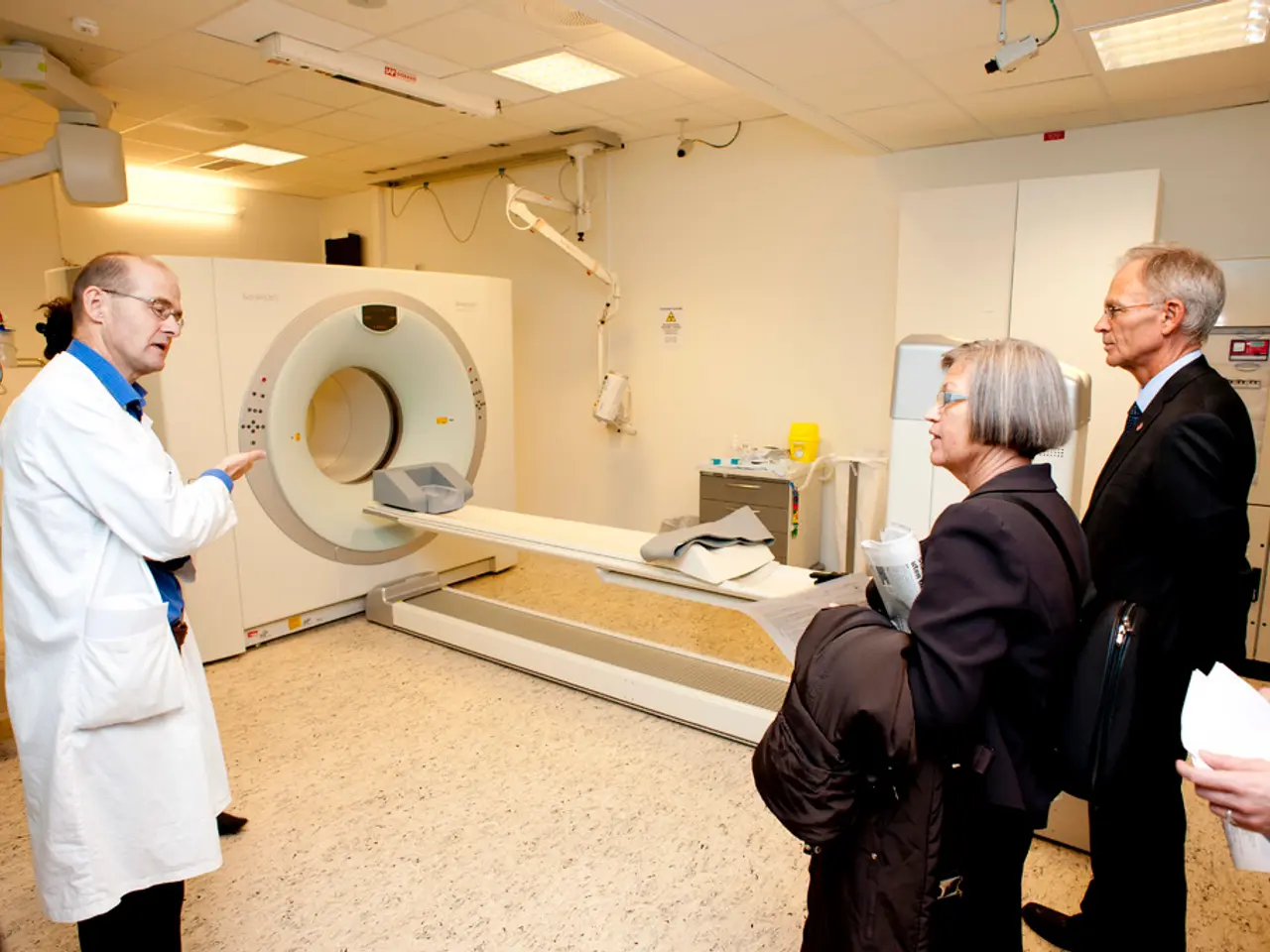Federal authorities in the United States have given their approval to Bayer's application for a new MRI contrast agent.
The US Food and Drug Administration (FDA) has taken a significant step towards the approval of a new MRI contrast agent. Bayer's investigational agent, gadoquatrane, is one step closer to becoming a reality in the American medical landscape.
Gadoquatrane, developed by Bayer, is an innovative MRI contrast agent that, if approved, would become the lowest-dose GBCA (Gadolinium-based Contrast Agent) available in the U.S. The company claims that the submitted dose of gadoquatrane is 0.04 mmol Gd/kg body weight, representing a 60% reduction compared to macrocyclic GBCAs dosed at 0.1 mmol Gd/kg body weight.
The FDA's interest in gadoquatrane stems from the promising results of a phase II trial. This trial demonstrated strong efficacy and safety of gadoquatrane across adult, pediatric, and neonatal patients. The results suggest that gadoquatrane may be effective for use in a wide range of patients, including neonates, and indicate that it may be safe for use in this vulnerable population.
If approved, gadoquatrane could potentially be used in multiple countries, as suggested by the ongoing regulatory reviews. Bayer has noted that reviews for gadoquatrane are ongoing in Japan, Europe, and other countries.
The FDA's acceptance of Bayer's New Drug Application (NDA) for gadoquatrane is a significant milestone. The phase II trial results support the FDA's acceptance, providing evidence for the safety and efficacy of gadoquatrane. If approved, gadoquatrane would offer a reduced dose option compared to current macrocyclic GBCAs, which could have significant implications for patient safety and health care costs.
In a statement, Bayer emphasised that if approved, gadoquatrane would be a significant reduction in dose compared to current macrocyclic GBCAs. The company believes that this reduction could lead to a safer and more cost-effective alternative for MRI procedures.
As the FDA continues its review of gadoquatrane, the medical community eagerly awaits a potential new standard in MRI contrast agents. If approved, gadoquatrane could revolutionise the field, offering a safer, more cost-effective, and lower-dose alternative for patients undergoing MRI procedures.
Read also:
- Peptide YY (PYY): Exploring its Role in Appetite Suppression, Intestinal Health, and Cognitive Links
- Toddler Health: Rotavirus Signs, Origins, and Potential Complications
- Digestive issues and heart discomfort: Root causes and associated health conditions
- House Infernos: Deadly Hazards Surpassing the Flames








